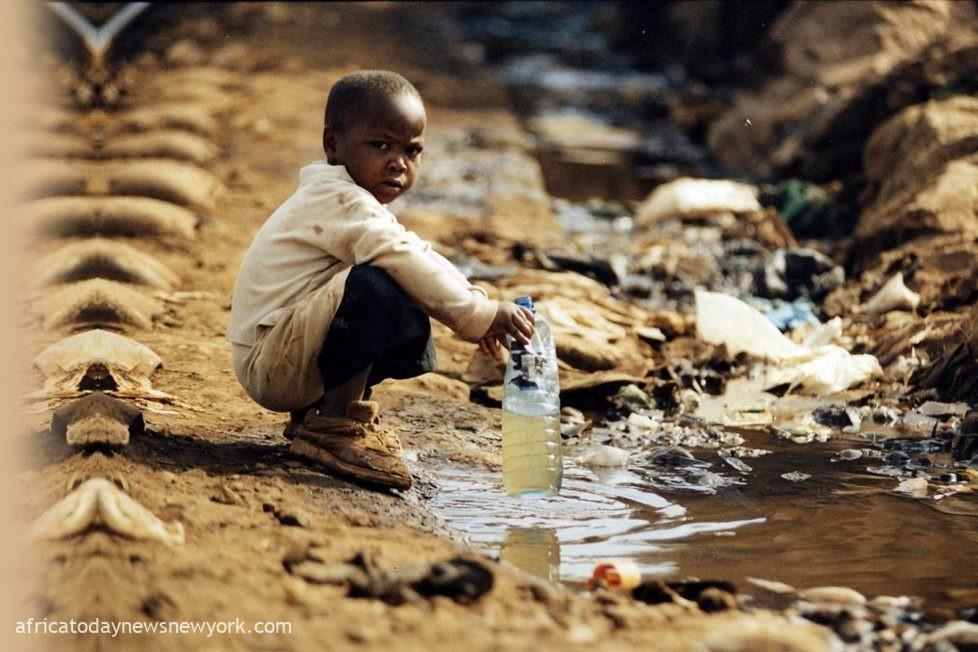If left unchecked, by 2050, antimicrobial resistance (AMR) would lead to over 10 million deaths annually. Currently, in sub-Saharan Africa, of every 100,000 deaths, about 24 are traced to intra-abdominal infection, chest, lower respiratory, and bloodstream infections. Unfortunately, these diseases are caused by antimicrobial-resistant organisms.
In a world grappling with the rising tide of antimicrobial resistance (AMR), Africa finds itself at the epicenter of this global health crisis. With limited resources and inadequate surveillance systems, Africa faces unique challenges in combating the spread of drug-resistant bacteria. However, amidst these challenges lies a hidden treasure trove of information that can help scientists gain valuable insights: wastewater.
Wastewater, often overlooked and dismissed as a mere byproduct of human activity, holds a wealth of information about the prevalence and transmission of drug-resistant bacteria. This untapped resource can serve as a vital tool in our fight against AMR in Africa. By analyzing the genetic material present in wastewater, scientists can identify the specific strains of bacteria present and determine their resistance patterns. This information is crucial in understanding the scope and scale of the problem and designing effective strategies to combat AMR.
Read Also: AI Is Making Translation Of Thoughts To Text Possible
According to the World Health Organization (WHO), drug-resistant infections claim an estimated 700,000 lives globally each year, with the African continent bearing a significant burden. The misuse and overuse of antibiotics in human and veterinary medicine, as well as in agriculture, have fueled the emergence and spread of drug-resistant bacteria. In Africa, where agriculture plays a vital role in the economy and food security, the use of antibiotics in animal farming and crop production is widespread. This practice not only contributes to AMR but also poses a direct threat to public health.
A study of pig and pig products published by National Library of Medicine showed that resistant bacteria were found at all the stages of sampling, from the farm to transport, to abattoir, and to the final packaged meat. Sadly, many consumers are ignorant or do not care. In addition to this, agricultural runoff, contaminated with antibiotic residues, finds its way into water bodies that serve as sources of (untreated) water for domestic uses. These water bodies alongside ill-equipped water treatment plants become hotspots for the proliferation of drug-resistant bacteria. The genetic material of these bacteria is then shed into the environment through treated wastewater, perpetuating the cycle of AMR.
To address this urgent issue, it is imperative that African scientists and policymakers recognize the potential of wastewater as a valuable source of information. Efforts should be directed towards establishing robust surveillance systems and research initiatives to study the prevalence and transmission of drug-resistant bacteria through wastewater. By leveraging advanced genetic sequencing technologies, scientists can identify the specific genes responsible for resistance, allowing for targeted interventions and the development of effective antimicrobial strategies.
Several international organizations, such as the African Society for Laboratory Medicine (ASLM) and the African Union Inter-African Bureau for Animal Resources (AU-IBAR), are actively engaged in combating AMR in Africa. These organizations play a pivotal role in promoting research, capacity building, and policy development to address AMR across the continent. Collaborative efforts between scientists, policymakers, and international organizations are crucial to harnessing the potential of wastewater surveillance in Africa’s fight against drug-resistant bacteria.
Moreover, public awareness and education are key to curbing the misuse of antibiotics in both human and animal healthcare. Initiatives that emphasize responsible antibiotic use, such as the Antibiotic Awareness Week (18 – 24 November 2023) organized by the WHO, are instrumental in educating the public about the risks of AMR and promoting behavior change.
It is important to add that the implications of AMR extend far beyond the realm of healthcare. WHO predicts that by 2030, AMR would have forced 24 million people into extreme poverty. In Africa, where agriculture is a cornerstone of the economy, the rise of drug-resistant bacteria threatens food security, livelihoods, and economic stability. By investing in wastewater surveillance and adopting sustainable agricultural practices, Africa can safeguard its agricultural sector while protecting public health.
Although only less than 5% of wastewater generated in Africa passes through surveillance or treatment, wastewater represents a largely untapped resource for Africa’s scientists in their battle against drug-resistant bacteria. By analyzing wastewater, scientists can gain valuable insights into the prevalence and transmission of AMR, allowing for targeted interventions and the development of effective antimicrobial strategies.
African scientists, policymakers, and international organizations are called upon and encouraged to establish robust wastewater surveillance systems and research initiatives. By doing so, we can unlock a potent combative power for AMR before it destroys us.
Ehi Ogwiji is a storyteller and science writer who advocates for a science-literate Africa. She aspires to be a science development communicator and leader of important conversations around gender imbalances in STEMM (Science, Technology, Engineering, Mathematics, Medicine) in Africa and around the world. She writes from Abuja, Nigeria. Connect with her on social media @ogwijiehi.
